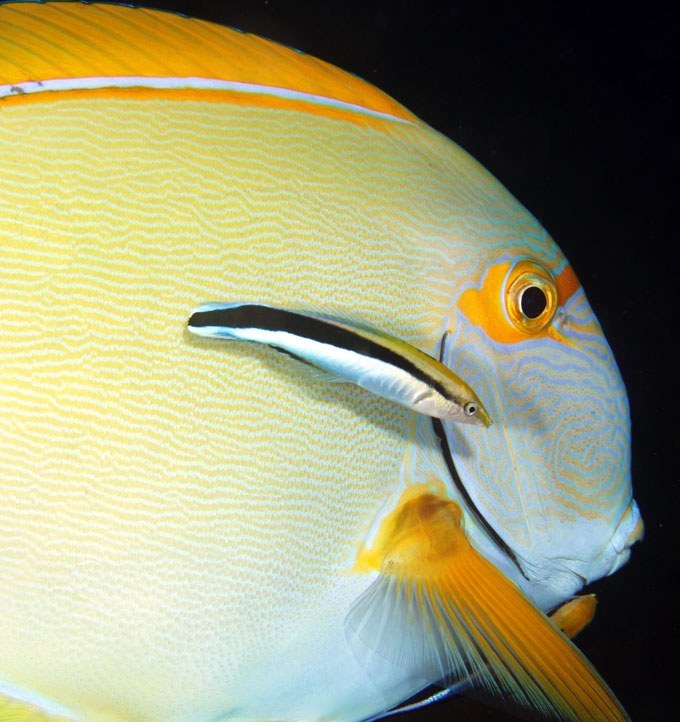
An. A.dussumieri tang being cleaned by two cleaner wrasses (Can you spot the second one?). Photo by Klaus Stiefel
About Flashback Fridays: Every Friday, Advanced Aquarist will repost a blog article from this week one year ago. With all the content we publish, we want to share the timeless and interesting articles for our new readers as well as regulars who may have missed the origin
What was done?
On two patch reefs, researchers removed all cleaner wrasses (Labroides dimidiatus) and maintained them cleaner-free for 8.5 years. A control site (where cleaner wrasses were left alone) was also monitored for the same time period. This is the first-ever investigation on the long-term effects of cleaner wrasses on fish communities.
What was observed?
After 8.5 years, the two removal reefs differed from the control reef in the following ways:
- Damselfish (Pomacentridae) were smaller in size
- Resident fishes were 37% less abundant
- There was 23% less species richness per removal reef.
- The removal reefs also showed a staggering 65% reduction in juvenile visitor fishes (fish likely to move between reefs)
- There was 33% lower species richness of visitor fishes …
- and 66% lower abundance of visitor herbivores such as Tangs (Acanthuridae)
What this means?
Simply put, cleaner wrasses have an ecosystem-changing impact on coral reefs. The data clearly suggest that their removal results in less healthy fishes (e.g. smaller fish sizes and reduced populations). Cleaner wrasses serve a critical role in the health of the fishes they service.
It isn’t just a $10 fish at stake. It’s an entire reef community you impact with your purchase of a cleaner wrasse.
But the more significant impact is how cleaner wrasses are major attractions for fishes to join a reef community. Their absence drastically reduces the recruitment of fishes to a reef. Reefkeepers know biodiversity is vital to a health; One addition (or subtraction as is the case here) can alter the balance of an ecosystem. For example, a reef with 66% less herbivores will result in a very different balance of algae to corals. This, in turn, creates a cascading chain effect on many other organisms, ultimately reshaping a reef in dramatic fashion.
An advanced aquarist is a conscientious aquarist.
Removing cleaner wrasses from reefs radically reshapes communities. For the sake of coral reefs we cherish, we should never collect cleaner wrasses for the aquarium trade. Share this article with your LFS, mail order vendor, and fellow hobbyists to convince them never to sell, advertise, or purchase cleaner wrasses.
reference: PLoS ONE









0 Comments